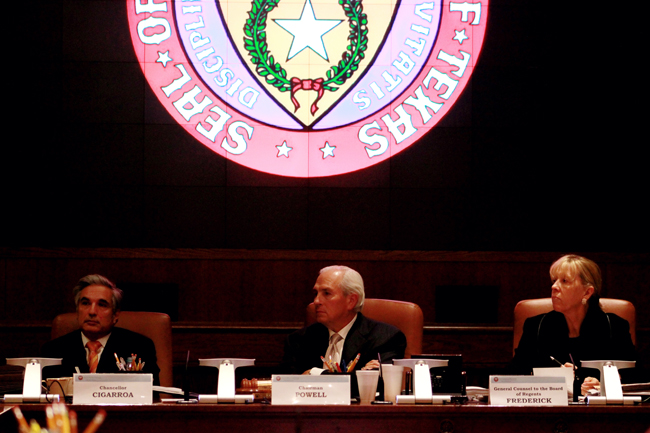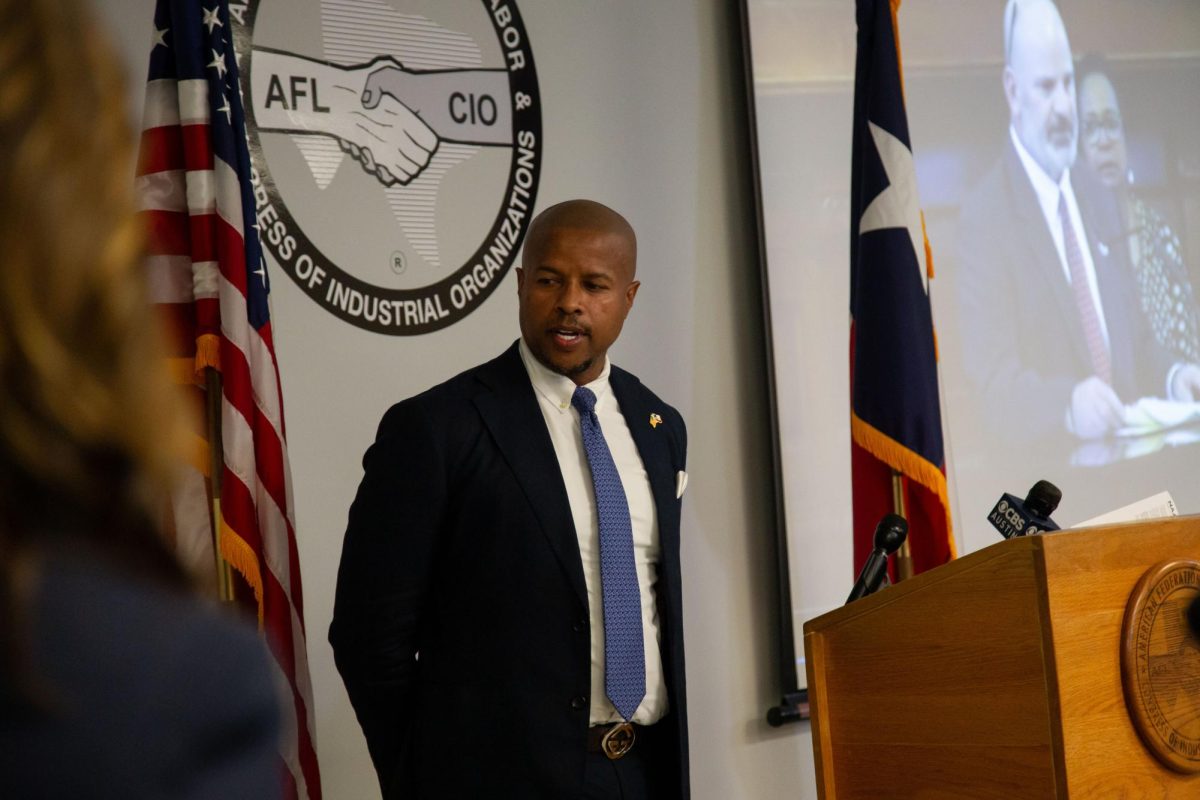In late August of 2011, both Brian McCall, chancellor of the Texas State University System, and Francisco Cigarroa, chancellor of the University of Texas System, laid out new visions for their systems.
Though McCall’s “Picking Up the Pace” plan came first, Cigarroa’s “Framework for Advancing Excellence” garnered the most attention. He has been invited to the White House to discuss it — twice. Cigarroa’s is also more comprehensive and specific in its goals, but both lay out similar thematic plans, such as implementing strategies to reduce students’ time to degree completion, improve graduation rates and increase philanthropic giving to their universities.
In the past week, both chancellors had occasion to review their progress with their respective boards of regents.
Generally, both leaders gave rosy reviews to the progress in their systems. For example, McCall noted that collaboration across his system is on the rise, and Cigarroa observed that the UT System had strengthened and clarified its post-tenure review. Institutions in both systems have implemented $10,000 degree programs, as Gov. Rick Perry called for in early 2011.
But there is still room for improvement. In his new “Setting the Pace” report, while discussing graduation rates, McCall notes, “We still need to better understand why those who leave our institutions without earning degrees do so.”
A framework update put out by the UT System points out that much progress remains on the goals to expand health education and opportunities in South Texas, though Cigarroa recently announced the system’s intention to graduate its first medical school class in the Lower Rio Grande Valley in 2018.
The UT System framework grew out of months of turmoil sparked by disagreements over how the regents should go about reforming higher education. The Texas Public Policy Foundation, a conservative think tank based in Austin, was the source of some of the most controversial proposals to the state’s higher education policies.
The TPPF endorsed the framework when it debuted, and stood by that endorsement as its anniversary approached. But Thomas Lindsay, the director of the TPPF’s Center for Higher Education, cautioned against losing sight of improving how much students actually learn in college as the framework is implemented.
“We cannot speak credibly of ‘advancing excellence’ in public higher education without taking first into account whether and how much students increase their knowledge as a result of investing four years in college,” he said in a statement. “While increased graduation rates, online learning advances, sponsored research, increased advising and the like are important goals, to focus on these rather than the central goal of student learning serves little purpose.”
But at Thursday’s UT System regents meeting, the framework was clearly a source of pride. “From what I understand, the chancellor’s framework is quickly becoming a national model,” said Gene Powell, the chairman of the board of regents.
“It is a work in progress focused on continual improvement,” Cigarroa said in a statement. “Some initiatives have been completed; for others, we have created the infrastructures that will yield substantive results over time.”
Lindsay did not specifically comment on McCall’s plan for the Texas State University System, which has largely avoided the controversy that embroiled the state’s two largest university systems: UT and the Texas A&M University System.
McCall also marked the anniversary by calling for further improvements in the coming year, including increasing the use of electronic textbooks and examining ways to reduce planning and construction costs for new facilities.
“Now that the pace has been set, we know what we must continue to do,” he said in his report. “The future is the result of what we do now.”
Reporting by Reeve Hamilton of the Texas Tribune.




















